Top 10 Health Benefits of Chestnuts
Chestnuts are the edible nuts of the Castanea genus of plants and shrubs. They have a delectable, gently sweet flavor and are extremely versatile. You may use ... read more...them in a variety of meals, including stuffings, salads, and soups. It's important to note that these chestnuts are not related to the water chestnut, a sort of aquatic vegetable prominent in Asian cuisine. Chestnuts are not only a delightful treat, especially around the holidays, but they are also high in nutrients that have been linked to a variety of health advantages. Here are the most intriguing health benefits of chestnuts.
-
Despite their small size, chestnuts are packed with a variety of nutrients. A 10-kernel (84-gram) serving of roasted chestnuts provides the following:
- Calories: 206
- Protein: 2.7 grams
- Fat: 1.9 grams
- Carbs: 44.5 grams
- Fiber: 4.3 grams, 15% of the Daily Value (DV)
- Copper: 47% of the DV
- Manganese: 43% of the DV
- Vitamin B6: 25% of the DV
- Vitamin C: 24% of the DV
- Thiamine: 17% of the DV
- Folate: 15% of the DV
- Riboflavin: 11% of the DV
- Potassium: 11% of the DV
Furthermore, chestnuts include a variety of vitamins and minerals, including vitamin K, B5, and B3, as well as phosphorus and magnesium. Chestnuts have fewer calories than most other nuts since they are low in fat. They are also higher in carbohydrates than other nuts and have high fiber content, offering 15% of your daily needs in only one serving.
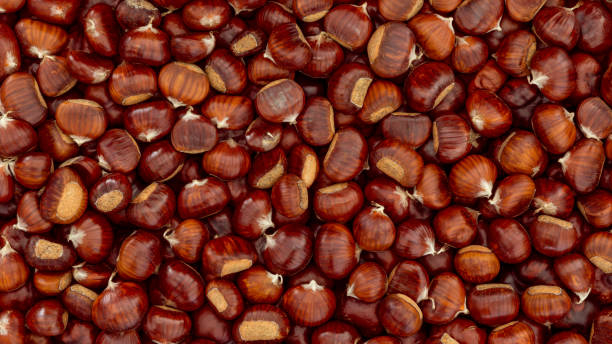
Packed with nutrients 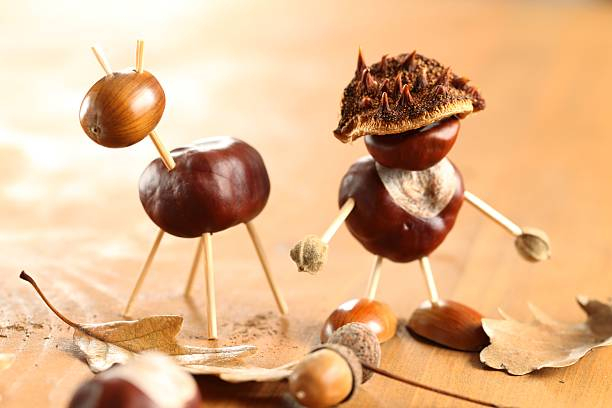
Packed with nutrients -
Chestnuts contain a wide variety of antioxidants, which are important for your health. These antioxidants include:
- vitamin C
- gallic acid
- ellagic acid
- tannins
- alkaloids
- various polyphenols
- lutein
- zeaxanthin
The remaining two antioxidants build up in your eyes' retinas and protect them from blue light damage. Antioxidants are substances that help protect your cells from free radicals, which are unstable molecules. High quantities of free radicals can lead to oxidative stress. Chronic disorders such as heart disease, diabetes, and cancer might be exacerbated by these factors. Furthermore, research has indicated that antioxidants present in chestnuts, such as gallic and ellagic acid, may help lower the risk of heart disease, reduce insulin resistance, and limit tumor growth and spread.
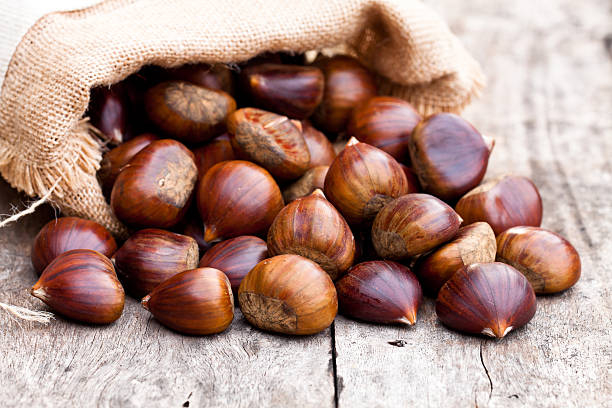
Great source of antioxidants 
Great source of antioxidants -
Chestnuts are high in nutrients that are excellent for your heart. To begin with, they include antioxidants like gallic and ellagic acid. According to research, these antioxidants may help protect the heart against oxidative stress, a condition that increases the risk of strokes and heart disease.
Chestnuts are also high in potassium, giving 11% of your daily requirements. Potassium is essential for heart health and helps regulate blood pressure. Furthermore, studies have found that eating a potassium-rich diet may reduce the risk of heart disease by up to 27%, with a 24% lower risk of stroke.
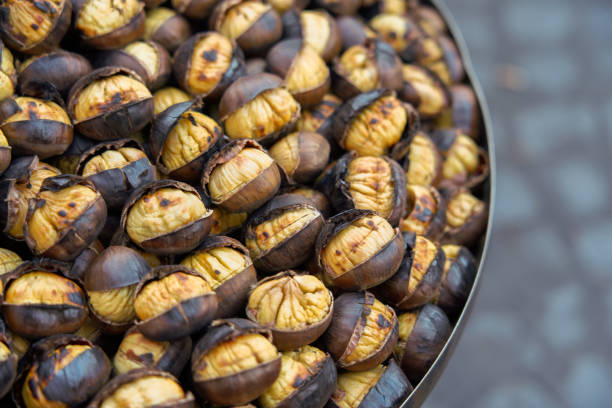
May aid heart health 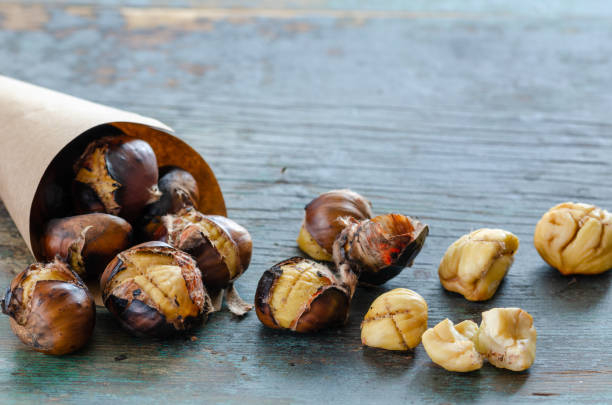
May aid heart health -
Chestnuts are high in fiber, which offers numerous health benefits. For one thing, fiber adds volume to your stools, making them easier to pass and potentially keeping you regular. Furthermore, the fiber in your diet enters your colon mostly undigested, where it works as a prebiotic. This implies that the fiber becomes a source of nutrition for the beneficial bacteria in your gut that ferment fiber.
When bacteria in the gut digest fiber, they produce a variety of useful substances, including short-chain fatty acids. These short-chain fatty acids have various advantages. According to research, they may benefit gut health, reduce inflammation, and enhance blood sugar control. Finally, because fiber travels mainly undigested through your body, it does not contribute calories to your diet. Instead, it promotes feelings of fullness without adding calories to your diet, which may aid in weight loss.
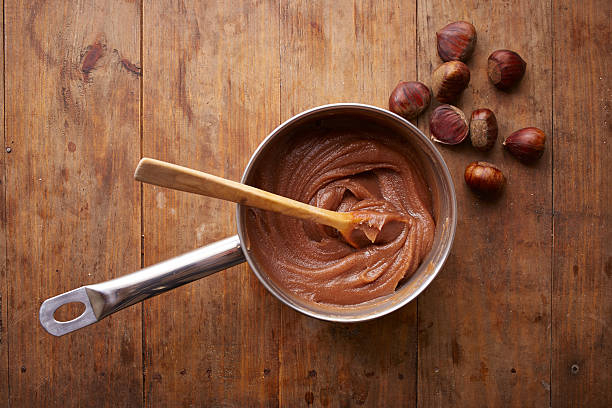
High in fiber 
High in fiber -
Maintaining a stable blood sugar level is vital for your overall health, but it is especially important if you have prediabetes or diabetes. This is because persistent high blood sugar levels in diabetics might increase the risk of health issues. These complications include blood vessel and organ damage. Chestnuts contain a number of intriguing qualities that may help with blood sugar regulation. Despite having more carbs than most nuts, chestnuts are abundant in fiber, which can help reduce blood sugar rises.
Furthermore, research has indicated that chestnut antioxidants like gallic and ellagic acid help control blood sugar levels and may increase insulin sensitivity, making your cells more receptive to insulin. Chestnuts, on the other hand, are higher-carb nuts. While eating a small to moderate amount of chestnuts may provide these benefits, eating too many chestnuts on a regular basis may negate these health benefits.
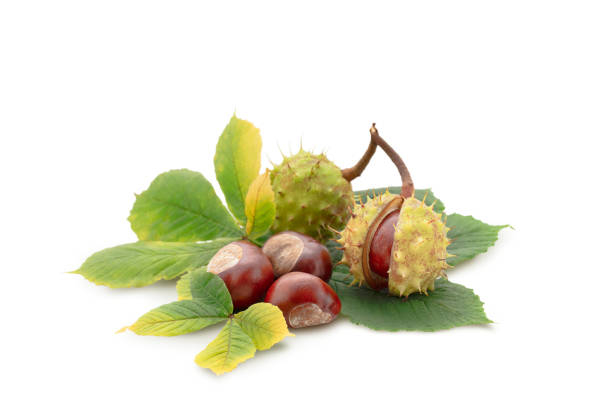
May improve blood sugar control 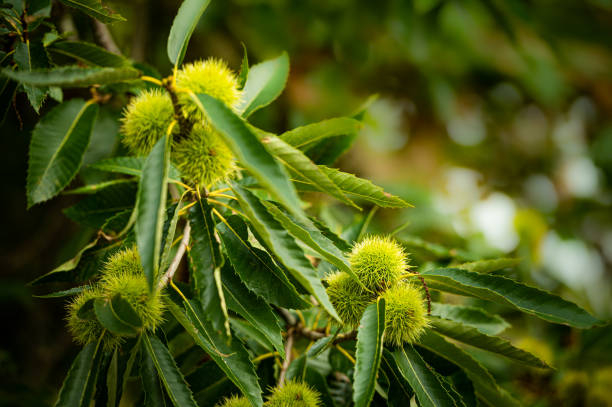
May improve blood sugar control -
Chestnuts offer a number of characteristics that may help with weight loss. Because of the high fiber content, they can help you feel fuller for longer. This is due to the fact that fiber can assist slow the time it takes for food to pass from the stomach into the intestines. Furthermore, studies have shown that a high fiber intake can enhance the synthesis of appetite-controlling hormones such peptide YY (PYY) and glucagon-like peptide-1 (GLP-1) while decreasing the hunger hormone ghrelin. Furthermore, chestnuts have fewer calories per gram than the majority of other nuts. This is due to their low-fat content, which is the most calorie-dense nutrient.
If you want to reduce weight, you will need to generate a calorie deficit. Eating chestnuts may assist you in accomplishing this while also making you feel full. An animal study discovered that eating chestnuts may help lower cholesterol and abdominal fat. However, further research is needed to evaluate these potential impacts.
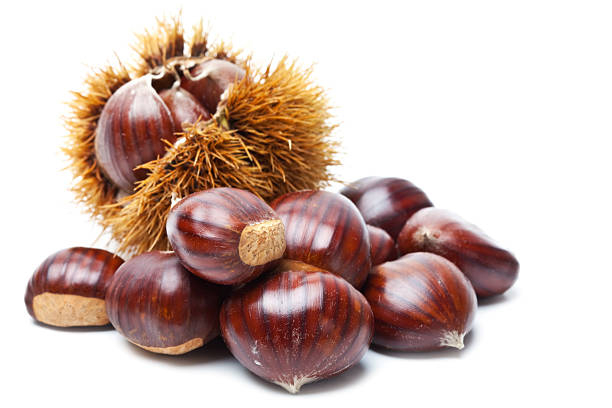
May aid weight loss 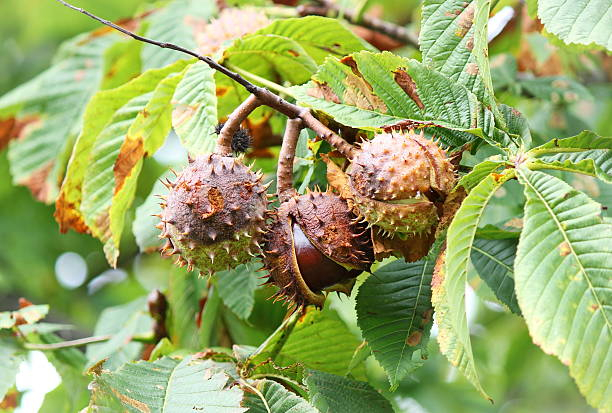
May aid weight loss -
Inflammation is a natural process that aids in the healing and defense of the body. In other cases, low-level inflammation may continue. This is known as chronic inflammation, and it has been related to a variety of chronic illnesses, including heart disease, diabetes, and cancer. Chestnuts offer anti-inflammatory effects that may be beneficial.
Antioxidants such as vitamin C, gallic acid, ellagic acid, and different polyphenols found in them can help reduce inflammation. They combat free radicals, which are major causes of chronic inflammation. Furthermore, animal and test-tube studies have revealed that chestnut antioxidants, such as tannins and flavonoids, can help reduce inflammatory signals like NF-B and MAPK.
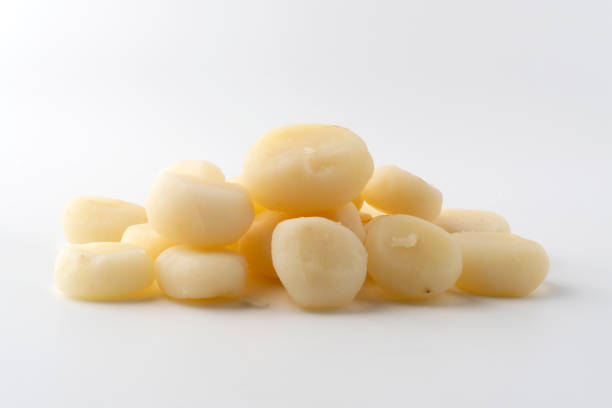
May lower inflammation 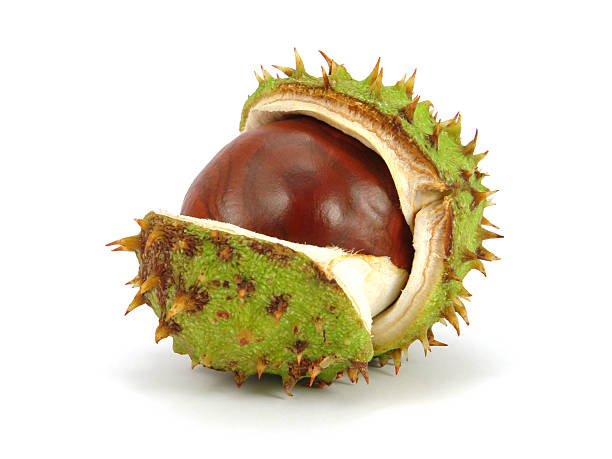
May lower inflammation -
Test-tube research reveals that chestnuts may have anti-tumor capabilities. These studies, in particular, demonstrate that the antioxidants present in chestnuts may help restrict cancer cell development and spread while also stimulating cancer cell death. In vitro research revealed that chestnut extracts inhibited the growth and spread of numerous cancer cells, including prostate, breast, and colon malignancies.
Other test-tube and animal investigations on chestnut antioxidants, such as ellagic acid, have discovered that they may also inhibit tumor cell spread and accelerate tumor cell death. Ellagic acid, in particular, affects the PI3K signaling pathway, which regulates cell growth and survival. However, further research in humans and animals is needed to understand how the chemicals contained in chestnuts may affect cancer cells in humans.

Potential anti-tumor properties 
Potential anti-tumor properties -
Because of the quantity of bone-strengthening minerals such as calcium, potassium, phosphorus, magnesium, etc., chestnut helps to build your bones and teeth. Calcium is an important mineral for bone health since it supports bone growth and development and lowers the risk of osteoporosis.
Potassium boosts bone density by neutralizing acid load and lowering calcium loss from the bones. Potassium in chestnuts is an important mineral for bone health since it combines with calcium to make bones. Magnesium, found in chestnuts, also helps to improve bone density.
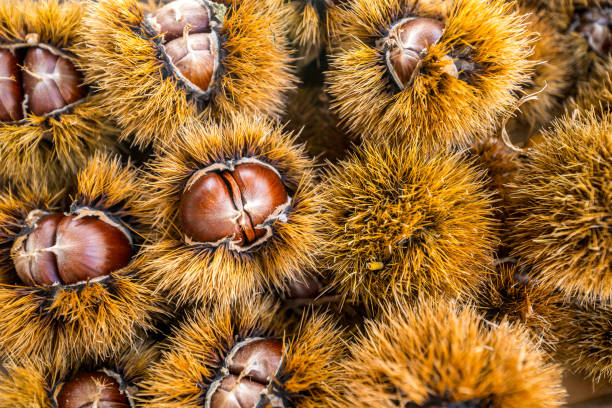
Strengthen bones and teeth 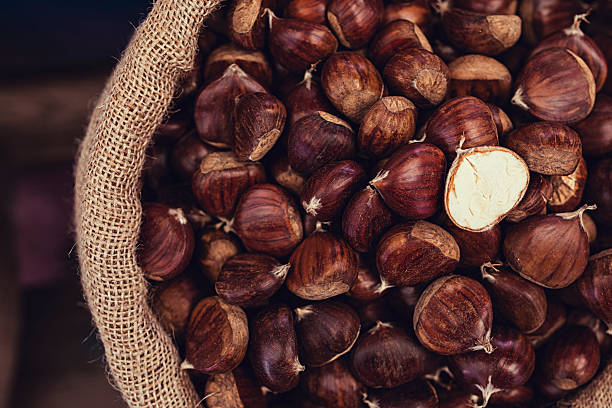
Strengthen bones and teeth -
Chestnut is beneficial for the stomach and helps with digestion. Chestnut contains antioxidants such as vitamin C, vitamin A, and other antioxidant substances such as phytonutrients, which protect our digestive system from free radical damage. This lowers the risk of developing cancers such as colon cancer, abdominal cancer, pancreatic cancer, and intestinal cancer, among others. The laxative qualities of dietary fibers in chestnuts enhance bowel movement and provide relief from constipation as well as other digestive issues such as abdominal pain, gas, bloating, and flatulence, among others.
It lowers the risk of diverticulosis, a disorder that causes inflammation in the small sections of the inner lining of the intestinal walls, due to its anti-inflammatory characteristics. Other minerals in chestnuts, such as calcium, potassium, magnesium, iron, and B vitamins, play an important part in supporting intestinal health.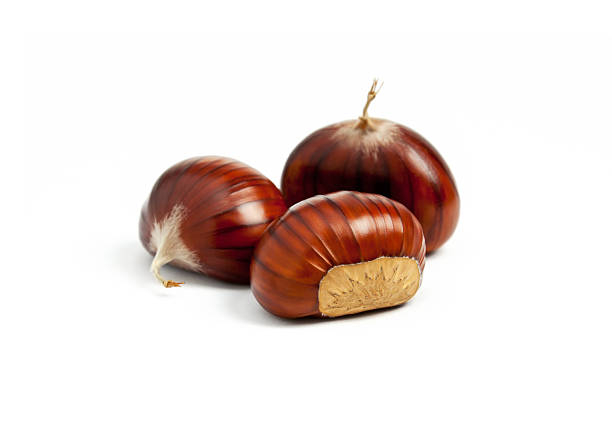
Improve digestive health 
Improve digestive health































